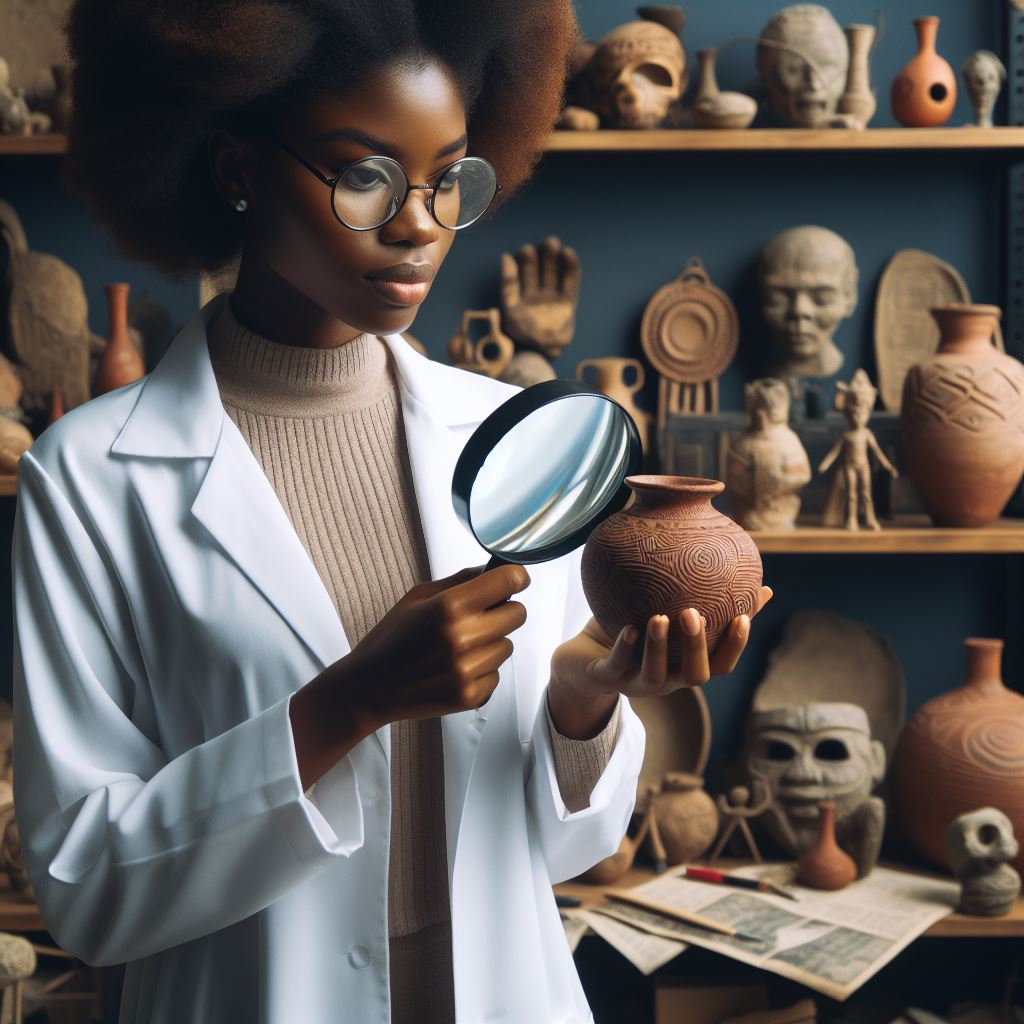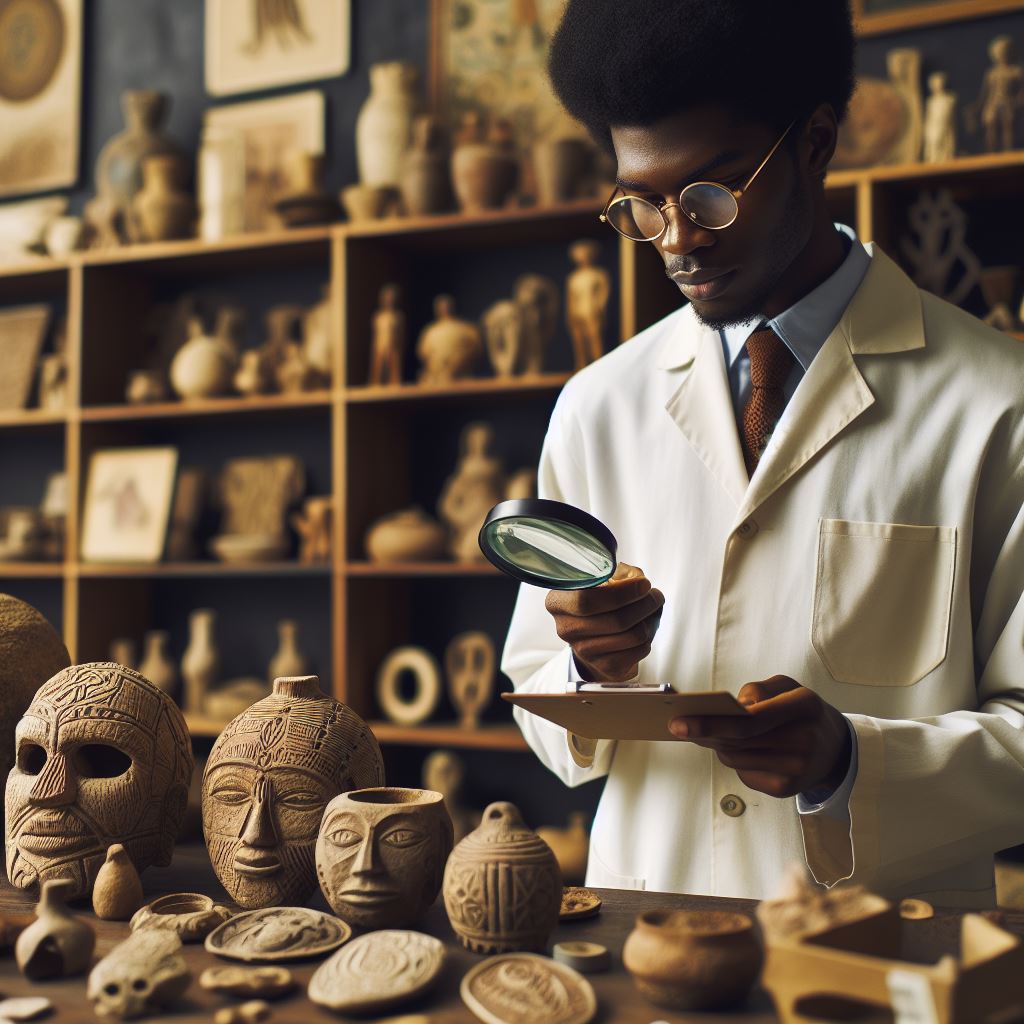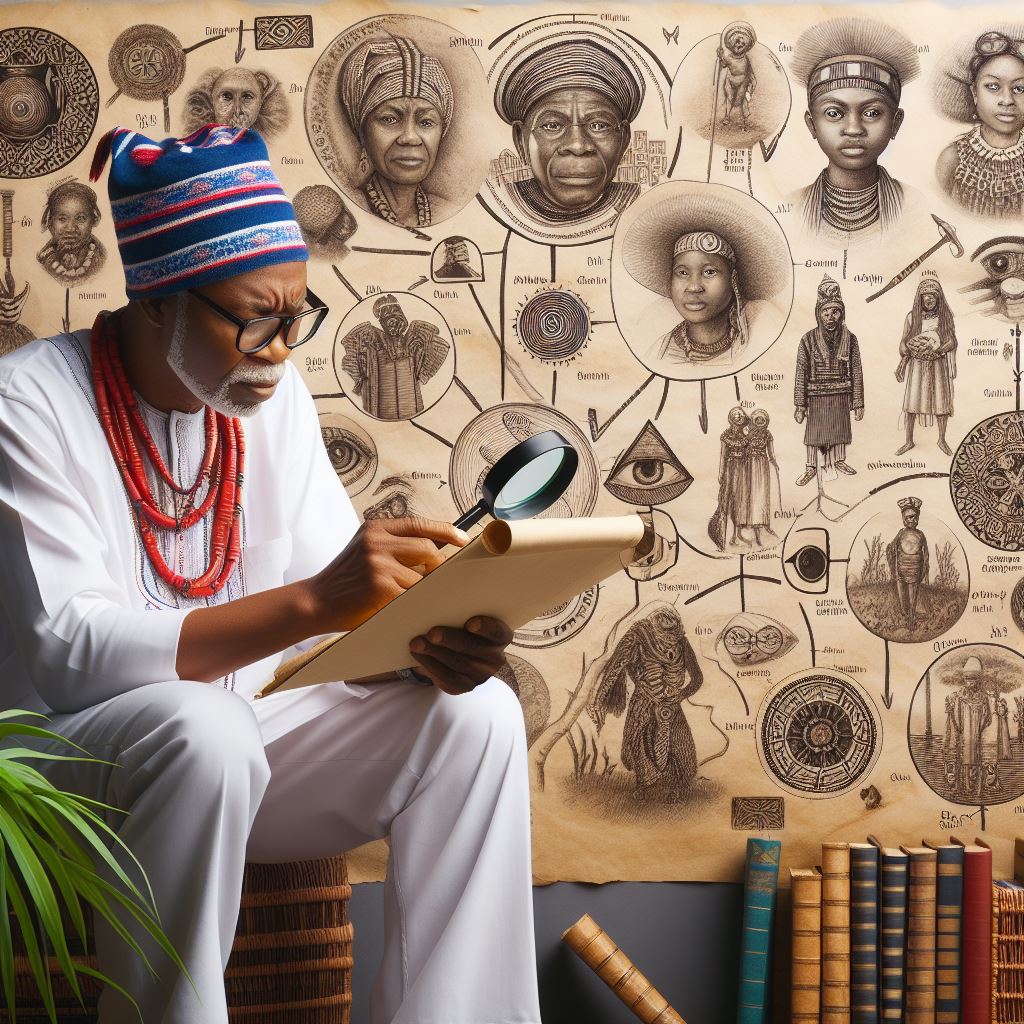Introduction
African universities, particularly Nigerian universities, play a crucial role in nurturing talent and promoting creativity in arts education.
Arts education in Nigerian universities encompasses a wide range of disciplines such as visual arts, performing arts, music, and literature.
Nigerian universities provide a conducive environment for students to explore their artistic abilities and cultivate their creativity.
They offer specialized programs in fine arts, theatre arts, music, and creative writing to hone the skills of aspiring artists.
Nigerian universities are instrumental in preserving the rich cultural heritage of the country through arts education.
Students engage with traditional art forms, folklore, and indigenous music, cultivating pride and identity.
The arts serve as a platform for social commentary and advocacy, addressing pressing issues in Nigerian society.
Through performances, exhibitions, and literary works, Nigerian universities contribute to driving positive social change.
Nigerian artists educated in universities are making a significant impact globally, representing the country on the international stage.
They showcase the diversity and vibrancy of Nigerian arts, gaining recognition and accolades worldwide.
Nigerian universities facilitate collaborations with international institutions and artists, fostering cross-cultural exchanges and partnerships.
Students and faculty engage in artistic collaborations that broaden their perspectives and enhance their artistic practice.
Historical overview of arts education in Nigerian universities
Establishment of arts departments in Nigerian universities
The establishment of arts departments in Nigerian universities dates back to the early days of tertiary education in the country.
To meet the rising demand for arts education, they created these new departments.
Evolution of Arts Education Curriculum Over the Years
Initially, arts education in Nigerian universities focused on traditional subjects like literature, history, and philosophy.
As the arts field grew, institutions introduced new departments to meet changing student demands.
Nigerian universities began to incorporate modern art forms, such as film studies, graphic design, and performing arts, into their curriculum.
The curriculum also expanded to include interdisciplinary studies that combine arts with other disciplines like technology, business, and social sciences.
Today, arts education in Nigerian universities is more comprehensive and varied, offering students a wide range of options to explore their creative talents and interests.
The focus is not only on academic knowledge but also on practical skills development through hands-on training, workshops, and internships with industry professionals.
Nigerian universities are also promoting research and innovation in the arts, encouraging students to explore new ideas, techniques, and approaches in their creative work.
Through collaborations with local and international partners, Nigerian universities are providing students with exposure to global trends and practices in the arts.
Overall, the contributions of Nigerian universities to arts education are significant, shaping the next generation of artists, writers, designers, and cultural leaders in the country.
Read: Anthropology and Nigeria’s Development Goals
Different disciplines within arts offered by Nigerian universities
Visual Arts
Nigerian universities offer programs in visual arts that provide students with the opportunity to explore and express their creativity through various mediums such as painting, sculpture, and drawing.
Theatre Arts
Students studying theatre arts in Nigerian universities learn about the history of theatre, acting techniques, and play production.
They have the chance to perform in various stage productions throughout their program.
Music
Nigerian universities offer music programs that cover a wide range of musical styles and genres.
Students have the opportunity to learn how to play instruments, read music, and compose their own pieces.
Dance
University programs in dance offer students the chance to study different forms of dance, such as ballet, contemporary, and traditional Nigerian dances.
Students also learn about dance history and choreography.
Literature
Students studying literature in Nigerian universities delve into the world of written works, exploring both classic and contemporary pieces.
They analyze texts, write essays, and develop critical thinking skills.
In fact, Nigerian universities provide a rich and diverse range of arts disciplines for students to explore and develop their talents.
These programs play a crucial role in nurturing creativity, promoting cultural expressions, and shaping the next generation of artists in Nigeria.
Read: Nigerian Arts: Preserving Culture for Future Generations
Contribution of Nigerian universities to arts research
Research publications by arts faculty
Nigerian universities have made significant contributions to the field of arts research through various initiatives.
One of the primary ways in which these institutions have contributed is through the publication of research articles and papers by their arts faculty.
These research publications cover a wide range of topics within the arts, including visual arts, performing arts, literature, and cultural studies.
They provide valuable insights and analysis that contribute to the body of knowledge in these fields.
Transform Your Career with Expert Guidance
Get personalized mentorship consulting that’s tailored to your unique path. Our expert advice is actionable and exclusive.
Get StartedCollaborations with international institutions for arts research projects
Furthermore, Nigerian universities have actively engaged in collaborations with international institutions for arts research projects.
These collaborations allow researchers from different countries to work together on shared research goals and objectives.
By working with international partners, Nigerian universities are able to leverage their resources and expertise to conduct more comprehensive and impactful research projects.
These collaborations also provide opportunities for faculty and students to engage with scholars from around the world, leading to the exchange of ideas and perspectives.
Overall, the contributions of Nigerian universities to arts research have been significant and have helped to advance the field in meaningful ways.
Through research publications and collaborations with international institutions, these universities continue to make valuable contributions to the global body of knowledge in the arts.
Read: Funding Opportunities for Anthropology Research in Nigeria

Inclusion of traditional Nigerian arts in university curriculum
Nigerian universities play a crucial role in the preservation of traditional arts.
By integrating traditional arts into the curriculum, universities promote cultural heritage.
Traditional Nigerian arts such as pottery, weaving, and beadwork are highlighted.
Students are exposed to the rich history and cultural significance of these art forms.
This integration ensures that traditional arts are passed down to future generations.
Through academic study, students gain a deeper appreciation for Nigerian cultural heritage.
By incorporating traditional arts, universities contribute to the promotion of diversity.
The inclusion of traditional arts provides a holistic approach to arts education.
Understanding traditional arts enhances students’ creativity and critical thinking skills.
Nigerian universities serve as custodians of traditional arts for future generations to appreciate.
Preservation of traditional Nigerian arts forms
Universities offer courses that focus on traditional Nigerian art forms.
Professors and experts in traditional arts teach students about the significance.
They ensure that traditional arts are not lost or forgotten over time.
Research projects are conducted to document and preserve traditional art forms.
Students are encouraged to engage with traditional artists to learn directly from them.
Museums and galleries within universities showcase traditional artworks for public viewing.
Exhibitions and events are organized to celebrate traditional Nigerian arts.
Students are given opportunities to participate in traditional art workshops and apprenticeships.
Collaborations with communities help in preserving traditional arts within university settings.
Initiatives are taken to collect and digitize traditional art resources for future reference.
Integration of traditional arts into modern arts education
Nigerian universities blend traditional arts with modern art practices.
Students learn how traditional arts influence contemporary artistic expressions.
Through interdisciplinary studies, students explore the connections between traditional and modern arts.
Workshops and seminars are conducted to discuss the evolution of Nigerian arts.
Collaborative projects with local artists bridge the gap between traditional and modern art.
By merging traditional and modern art forms, universities foster innovation and creativity.
Students are encouraged to experiment with traditional techniques in their artistic endeavors.
The fusion of traditional and modern arts expands students’ artistic vocabulary.
Exposing students to both traditional and modern arts enhances their artistic versatility.
Nigerian universities serve as catalysts for the revitalization of traditional arts in a modern context.
Read: Anthropology Conferences and Events in Nigeria
Impact of Nigerian universities on the Nigerian arts industry
Graduates of arts programs contributing to the local arts industry
Nigerian universities play a significant role in shaping the future of the arts industry in Nigeria.
Graduates of arts programs possess the skills and talent to excel in the arts industry.
They thrive in various sectors, using their comprehensive knowledge and expertise.
These graduates bring fresh perspectives, creativity, and innovation to the local arts scene.
They contribute to the growth and development of the industry through their unique artistic expressions and passion for their craft.
Whether they pursue careers as visual artists, musicians, writers, actors, or designers, these graduates add value to the local arts industry by showcasing Nigerian talent and creativity on both national and international platforms.
Promotion of Nigerian arts and culture through university initiatives
Nigerian universities play a vital role in promoting Nigerian arts and culture through various initiatives and programs.
These institutions serve as hubs for creative expression, cultural exchange, and artistic development.
Universities organize art exhibitions, cultural festivals, workshops, and seminars that highlight the rich and diverse heritage of Nigeria.
Through these events, they showcase the talents of students, faculty members, and local artists to a wider audience.
By promoting Nigerian arts and culture, universities contribute to preserving and celebrating the country’s heritage.
They serve as important platforms for cultural dialogue, exchange of ideas, and collaboration among artists, scholars, and the community.
Furthermore, universities collaborate with government agencies, art organizations, and cultural institutions to support and promote the arts industry.
They provide funding, resources, and opportunities for artists to showcase their work and connect with a broader audience.
In short, Nigerian universities have a profound impact on the Nigerian arts industry by nurturing talent, fostering creativity, and promoting cultural heritage.
Through their initiatives and programs, these institutions play a crucial role in shaping the future of the arts industry and contributing to the country’s cultural identity.
Collaboration between Nigerian universities and arts organizations
Partnerships with museums, art galleries, and cultural institutions
Universities in Nigeria have established relationships with various arts organizations to enrich the academic experience for students.
These partnerships allow students to access resources, gain exposure to different art forms, and collaborate on projects.
For example, the University of Lagos has a partnership with the National Art Gallery where students can exhibit their works and engage with professional artists.
Internship opportunities for arts students in the industry
Nigerian universities also provide internship opportunities for arts students to gain practical experience in their chosen field.
These internships help students to apply the knowledge they have gained in the classroom to real-world situations, build professional networks, and enhance their skills.
For instance, Ahmadu Bello University offers internship programs with leading art galleries and design firms, allowing students to work on live projects and get feedback from industry professionals.
Recognizing Nigerian Universities for Excellence in Arts Education
Nigerian universities have received numerous awards for their outstanding arts programs.
International recognition has been given to Nigerian arts education institutions for their excellence.
Awards Received by Nigerian Universities
University of Ibadan’s arts department has won awards for innovative teaching methods.
Ahmadu Bello University has been recognized for its research in traditional Nigerian arts.
Obafemi Awolowo University’s dance troupe has received accolades for performances at international festivals.
University of Lagos has been praised for its film studies program, producing award-winning filmmakers.
International Recognition of Nigerian Arts Education Institutions
UNESCO has recognized the National Institute for Cultural Orientation for preserving Nigerian arts and culture.
International conferences have invited Nigerian universities to share their arts education expertise.
Partnerships with foreign universities have allowed Nigerian institutions to showcase their arts programs globally.
Renowned institutions abroad have invited Nigerian artists and scholars to teach and present their work.
Conclusion
Nigerian universities play a significant role in nurturing and developing artistic talent in the country.
They provide a platform for students to explore various forms of art and express themselves creatively.
Through academic programs, workshops, and exhibitions, these institutions help students hone their skills and become professional artists.
Nigerian universities also contribute to the preservation of cultural heritage by teaching traditional art forms.
However, there is a need for continued support and investment in arts education in Nigeria.
By investing in arts programs, the government and private sector can help cultivate a new generation of talented artists and contribute to the growth of the creative industry in the country.
It is crucial for stakeholders to recognize the importance of arts education and provide resources to ensure its sustainability.
By fostering a supportive environment for artistic expression, Nigerian universities can continue to make significant contributions to the arts and cultural landscape of the country.
Therefore, I urge all relevant parties to prioritize arts education and support the growth and development of Nigerian artists, as they have the potential to make a lasting impact on the local and global art scene.




